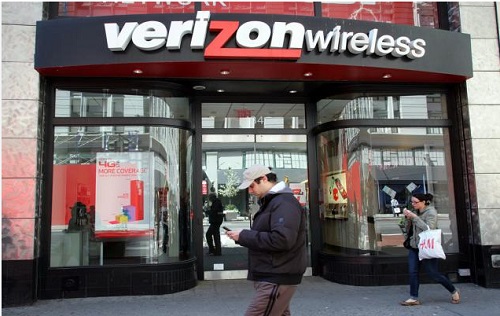Verizon subscribers will soon experience yet another increase in fees on their upcoming bills, a common tactic among wireless providers. As noted by Android Police, Verizon customers on Reddit observed a slight increase — just an additional 20 cents per line. However, this comes only a couple of years after a more significant rise in the “Administrative and Telco Recovery Charge” that Verizon adds to monthly billing, making the company’s assertion that it’s merely the cost of business seem questionable at best.
George Koroneos, a spokesperson for Verizon, confirmed the fee increase to The Verge, stating that “Effective December 18, the monthly Verizon wireless Administrative and Telco Recovery Charge will rise by $0.20 per line for mobile voice (basic phones, Second Number, smartphones, etc.) and data-only (hotspots, tablets, etc.) products. Verizon Home Internet services won’t be affected.” This adjustment raises the fee from $3.30 to $3.50 for each voice line on a plan and from $1.40 to $1.60 per data line.
According to a Verizon support page, this fee “helps cover and recuperate certain direct and indirect costs we or our agents incur,” which includes expenses associated with network operation and maintenance. AT&T and T-Mobile use different terms for the same fee, yet all essentially make similar claims about offsetting the costs of running a wireless network.
From a more skeptical viewpoint, these wireless companies separate this fee from their monthly rate plan charges to raise prices without it being termed a rate hike. This strategy was the basis for a class-action lawsuit against AT&T in 2022, which the company eventually agreed to settle.
Though it’s only a 20-cent increase now, this small hike can accumulate significantly when applied across millions of users. Remember, Verizon reported a net income of $3.4 billion in the third quarter of this year, a decrease from $4.9 billion in the same quarter last year. While the gradual increase in fees is nothing new, it serves as another reminder of the methods these companies can use to enhance their profits.
If you have an older Verizon unlimited plan for your mobile phone, you might notice a larger bill shortly. The mobile carrier plans to raise the prices of the 5G Get More, 5G Play More, 5G Do More, and 5G Start unlimited mobile plans by $4, starting in March 2024.
“Beginning March 1, Verizon customers on select older unlimited mobile plans will experience a $4 per line increase each month, effective in their next billing cycle,” a Verizon spokesperson stated to CNET.
This latest adjustment in pricing from Verizon follows previous increases on certain older unlimited plans last summer and the addition of new fees on other plans. In 2022, it also raised rates on shared data plans. Plans that have previously seen a rate increase will not face another adjustment at this time.
Like other price hikes from the company, this latest move seems intended to encourage users to transition to some of its newer “myPlan” unlimited plans, which are branded as Unlimited Ultimate, Unlimited Plus, and Unlimited Welcome. Although these new plans do not include streaming services such as the Disney bundle or international data roaming days, users can add them for $10 per month as “perks.”
The spokesperson emphasized that the pricing for any of the newer plans will “remain unchanged.”
Verizon joins other wireless providers in adjusting their pricing. In January, AT&T increased prices for its unlimited plans by 99 cents per line, while T-Mobile also confirmed it would be raising costs for its Home Internet service.
T-Mobile is implementing price increases across several of its plans
T-Mobile has started notifying customers that it will raise their rates by as much as $5 per line each month. The company’s assistance account on X confirmed this price increase, informing multiple customers that it was “adjusting prices in response to rising costs.” Reports indicate that the increase affects older plans, including One, Magenta, Magenta 55 Plus / Military, and Simple Choice, as well as its assortment of Go5G 55 plans for seniors, although the full extent of the increases is not entirely known.
T-Mobile informed employees that it is notifying the “small fraction of customers” impacted by the change today, May 22nd, based on internal documents and slides shared by The Mobile Report. The company stated that the increases, which are either $2 or $5 depending on the customer’s plan, will appear on their next bill “as soon as June 5th.”
The Go5G 55 plans will see a $5 per line, per month increase, “or more for single-line plans,” but these price hikes will only apply to new customers, according to a separate report by The Mobile Report. The Essentials Choice 55 plan is reportedly not affected. T-Mobile declined to comment on these changes.
Why? The straightforward answer is Disney. I realize that sounds like an odd link, but those older wireless plans came with the Disney Plus bundle at no cost. While they were free for users, they definitely imposed costs on Verizon. Someone needs to cover the expenses for all those Marvel films, and in this scenario, Verizon was paying Disney for all of its users.
This isn’t uncommon. In fact, for an extended period, it was standard practice for mobile carriers to attract customers by partnering with various streaming services for co-marketing agreements. Verizon isn’t the only company in this situation; T-Mobile has had a longstanding partnership with Netflix, for instance.
However, at some point, Verizon chose to stop incurring costs from Disney for all of its customers and thus discontinued the free benefit. The issue arose because if you were already subscribed to a plan that included it, Verizon remained obligated to pay for your subscription. Consequently, the company has been making it increasingly difficult to stay on those plans.
Generally speaking, such actions are something companies should avoid. This approach tends to make customers feel as though the business is more focused on extracting extra revenue rather than fostering a relationship that benefits both parties.
Consider this — Verizon is displeased with covering the costs of Disney Plus subscriptions for customers, an agreement it entered into initially to attract them to those plans. The situation is worsened by the fact that Verizon won’t remove you from your old plan; instead, it will progressively penalize customers who opt to remain. Over time, the company will continue to increase fees. Why would Verizon opt for this strategy? Simply because it can, and also because it aims to persuade everyone to switch to its newer, pricier plans.
Verizon would claim that the new plans aren’t more expensive, but that assertion only holds if you disregard the significant reduction in benefits. For instance, there’s no longer a Disney Plus bundle included. The previous plans also featured Apple Music.
I’m certain there’s someone at Verizon who believes they are providing a service by giving customers the ability to tailor their bundles to suit their needs, but in truth, it’s merely a mechanism to raise costs.
For example, we were on a plan that included both the Disney Plus bundle and Apple Music. Under the similar new plan — which appears to be $5 cheaper — neither benefit is included. Naturally, you can reinstate them for an additional $10 each. As someone who writes, math isn’t my strength, but paying effectively a $15 per month increase to regain what you once had for free isn’t a favorable offer.
The takeaway here is quite straightforward: you should primarily focus on ways to please your customers. Seek opportunities to enhance their lives and provide them with more of what they appreciate about your business. If you achieve this, they will gladly pay what it’s worth.
At the very least, you should avoid the urge to penalize them simply because you’ve grown weary of the deal you initially offered. It might appear to be a sound strategy, but it will invariably cost you more in the long term.
Finding an Affordable Plan for Your Smart Device
As a smart device owner, you are likely using a SIM card for connectivity. A smart device refers to an electronic gadget that connects with other devices or networks, such as an alarm system, GPS, smartwatch, vehicle, thermostat, etc.
Currently, there are around 8 billion connected devices worldwide. By 2020, Gartner predicts that the number of Internet of Things (IoT) devices will reach 20 billion! Not all devices will require a cellular connection; however, if your device includes a slot for a SIM card, it necessitates a GSM connection. Since US Mobile is a GSM provider, our services are compatible with these types of connected devices.
Various Smart Devices Require Different Plans
Our a la carte plan structure is well-suited for IoT. The pricing matrix allows you to tailor a cellular plan for your device.
Many of our clients already utilize our plans for devices other than smartphones and tablets. Thus, we can offer you guidance on your device’s usage based on our current users.
Alarms
For alarms, two popular choices at US Mobile are Reolink and Kerui. Alarm systems typically require text messages or minutes, starting with plans at $4/month (text only), which include fees. For more information on home security, visit our Alarm Plans Page.
GPS Trackers
Just like alarm systems, many GPS trackers require GSM connectivity. Reachfar and ATian are two examples of trackers that utilize our GSM SIM card. Trackers usually need data for tracking functionality, and notifications are often sent via text message. Hence, a combination of data and text for $6/month serves as an appropriate basic plan. Depending on how you use your GPS, you may need to add additional data, but you can easily modify your plan through your personal dashboard at US Mobile.
Cars
The most favored connected vehicle among our users is Audi, but you can rest assured that the SIM card is compatible with all connected vehicles. A data-only plan is the optimal choice for a connected car. Based on our internal statistics, usage varies significantly from 250 MB to 6 GB per month; therefore, we recommend starting with a 1 GB monthly plan and monitoring your individual usage before making any changes.
Smartwatches
A smartwatch is distinct from other smart devices we’ve discussed since they typically require talk, text, and data services. This necessity arises because many wearables function similarly to a simplified phone (or a more advanced GPS tracker). Two examples include MyFilip and Tinitell, both designed as smartwatches for children. Our talk, text, and data plans begin at $9 per month (this includes all fees), which is a suitable starting point if you have a GSM-connected smartwatch.
Mobile Data Plans Explained: Everything You Need to Know
Mobile data plans are vital for maintaining connectivity in today’s digital world. They enable individuals to access the internet on their smartphones, tablets, and other devices without relying on Wi-Fi. With various choices available, including unlimited mobile data plans and prepaid options, it’s essential to understand the details of these plans to make well-informed choices. This detailed guide will cover all you need to know about mobile data plans, helping you to select the best option for your requirements.
Mobile data plans allow users to access the internet on their devices via cellular networks. These plans differ in data limits, speeds, and pricing, allowing consumers to find the best match for their usage habits and budget. The main categories of mobile data plans include:
- Postpaid Plans: Billed monthly after usage, typically under a contract.
- Prepaid Plans: Paid in advance without a contract, offering more flexibility.
- Unlimited Plans: Provide unlimited data usage, although speeds might be reduced after reaching a certain limit.
Types of Mobile Data Plans
Postpaid Mobile Data Plans
Postpaid mobile data plans charge users monthly based on their usage. They often require a contract that can last from one to two years. These plans usually come with extra benefits such as family sharing options, international roaming packages, and higher network priority. If you have any inquiries about which plan is most suitable for you, don’t hesitate to reach out to us.
Prepaid Mobile Data Plans
Prepaid mobile data plans require users to pay in advance for a designated amount of data. These plans offer flexibility without the obligation of a long-term contract. They are ideal for individuals who wish to control their expenditures or need a temporary option. For instance, travelers might choose a prepaid plan to avoid high roaming costs. For more information on how our plans can improve your travel experience, visit our Destinations page.
Unlimited Mobile Data Plans
Unlimited mobile data plans allow users to use as much data as they wish without the concern of overage fees. However, it’s crucial to note that many providers have a fair usage policy, which may limit speeds after surpassing a certain data limit. These plans are ideal for heavy data users, like those who stream videos, engage in online gaming, or work remotely.
What are Prepaid Mobile Data Plans?
Prepaid mobile data plans are favored for their adaptability and budget management. With these plans, users pay in advance for a defined data amount, which can be utilized over a specified timeframe. Here is a closer examination of the advantages of prepaid mobile data plans:
- No Contracts: Users are not bound to lengthy contracts and can easily change providers or plans.
- Budget-Friendly: Due to the upfront payment, there are no unexpected bills or overage fees.
- Ideal for Travelers: Prepaid plans are excellent for those who need temporary mobile data options while traveling.
Can You Purchase Mobile Data?
Yes, mobile data can be purchased through various methods. Here are the most common ways to acquire mobile data:
- Directly from Carriers: Most mobile carriers provide data plans that can be bought online, in-person, or through customer service.
- Retail Stores: Numerous retailers offer prepaid SIM cards with data plans.
- Online Marketplaces: Websites like Amazon frequently have prepaid SIM cards available for purchase.
For those utilizing eSIM technology, data plans can be downloaded and activated directly on the device.
Advantages of Unlimited Mobile Data Plans
Unlimited mobile data plans present several benefits, particularly for individuals with high data usage. Some prominent advantages include:
- No Extra Charges: Users can use as much data as desired without the fear of incurring additional fees.
- Reliable Connectivity: Perfect for activities needing continuous internet access, like streaming, gaming, and remote working.
- Family Options: Numerous providers offer unlimited data plans that can be shared with family members, leading to savings and greater convenience.
Nonetheless, it’s crucial to read the detailed terms, as certain plans may reduce speeds after reaching a specific usage limit. For additional information on selecting the appropriate plan, check the features of Roamless eSIM.
How to Select the Right Mobile Data Plan
When choosing a mobile data plan, keep these aspects in mind:
- Data Consumption: Estimate your monthly data needs to find the ideal plan. Casual users may do well with a smaller option, while heavy users might require unlimited data.
- Cost: Review the pricing of various plans and account for any extra charges, like activation fees or taxes.
- Network Coverage: Verify that the provider has good coverage in your region to prevent connectivity problems.
- Extras and Features: Seek plans that provide added benefits, such as international roaming, mobile hotspot capabilities, or family sharing.
- What is an eSIM Mobile Data Plan?
An eSIM mobile data plan is an embedded SIM that allows users to download and activate a data plan directly on their device without needing a physical SIM card. This technology provides numerous advantages:
- Convenience: Easily switch between various carriers and data plans without needing to swap out SIM cards.
- Versatility: Store multiple eSIM profiles on one device and switch when necessary.
- Environmentally Friendly: Decrease plastic waste by forgoing the need for physical SIM cards.
For a comprehensive guide to setting up an eSIM, refer to How to Setup Your eSIM?
What is the Cost of an Unlimited Data Mobile Plan?
The price of unlimited data mobile plans differs based on the provider and the specific features offered. Typically, these plans fall within the $50 to $100 per month range. Factors that affect pricing include:
- Network Speed: Plans that provide 5G connectivity may come at a higher cost.
- Additional Benefits: Plans that feature extras like international roaming or subscriptions to streaming services may be more expensive.
- Provider Standing: Reputable providers could charge more for enhanced network reliability and customer support.
Final Thoughts
Grasping mobile data plans is vital for maintaining connectivity in today’s fast-moving environment. Whether you choose a prepaid plan for its flexibility, an unlimited plan for its convenience, or an eSIM for its advanced functionalities, there’s an option suited for everyone. By evaluating your data needs, financial plan, and coverage requirements, you can select the best plan to remain connected wherever you go.
For further information and to discover the optimal eSIM choices, start utilizing our eSIM app! today for uninterrupted connectivity with Roamless.
By choosing the right mobile data plan, you ensure that you stay connected, productive, and entertained, regardless of your location.



